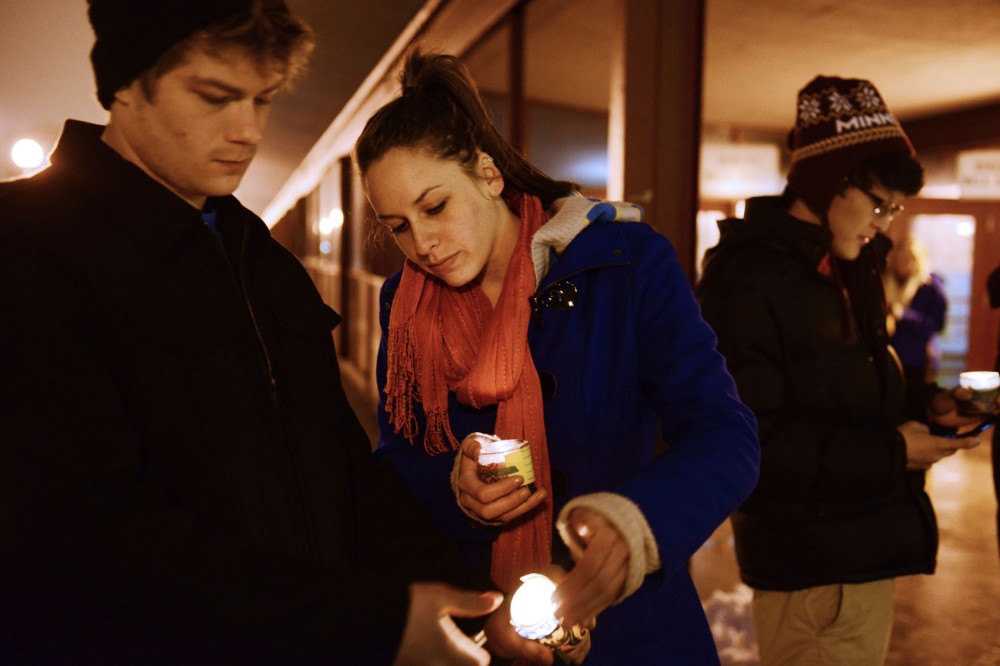Nearly 40 people lined the south-side railing of the Washington Avenue Bridge on Monday night.
It was quiet at first, somber, as the group stood in the cold, staring down at the nearly frozen water.
All came to grieve the death of Matt Challou, a 21-year-old University of Minnesota student who committed suicide last Monday.
Studies have found that suicide is one of the leading causes of death for young people. Contributing to that, depression and other mental illnesses are especially prevalent among college students.
A 2010 Boynton Student Health Survey found that a quarter of students at the University of Minnesota have been diagnosed with a mental health condition, with the most common being depression and anxiety.
Political science and sociology junior Julia Schliesing organized the Monday night vigil.
The two were friends in high school, and they both attended the University.
“Matt died one week ago today, and I wanted to organize [the vigil] and light up the bridge to show how he lit up our lives,” Schliesing said. “He was the last
person you would expect to [commit suicide]. He was the life of the party.”
Challou’s friends from his hometown of White Bear Lake and Hill Murrary High School came to pay their respects, along with his family and his priest.
The vigil began inside the Washington Avenue Bridge walkway, where Schliesing spoke about the importance of community and passed out candles adorned with a poem about Challou.
The group then moved outside to look down on the south end of the Mississippi River.
As they stood, three University counselors waited in silence behind the group. They had come to offer support for anybody who wanted it.
“This is a tragedy we never want to see happen again,” said senior psychologist Robert Seybold.
Candice Price, an urgent counselor at Boynton Mental Health Clinic, said the University offers counseling for those in need.
“We’re here to help, and there are therapies and treatments that can assist someone in managing their depression and recovering,” she said.
The University offers the Boynton Mental Health Clinic on the East Bank and University Counseling and Consulting Services with offices on both the East Bank and St. Paul campus.
The University is making mental health resources a priority in 2013, starting with the addition of a new mental health clinic on the St. Paul campus.
On its website, Boynton said that due to an “unexpectedly high demand,” it would likely be a month or more before a student could get a new appointment for therapy. But the site also notes group therapy sessions meet once a week and are open to all students with a $5 co-pay.
For urgent situations, students can call Boynton’s Crisis Connection.
At the vigil, Challou’s friends and family talked about how he was a sailor, a band mate, a friend and a constant source of laughter.
Others were silent, unable to describe their emotions.
“It’s hard to put into words, but it’s like I’ve always said: ‘He was the most genuine dude around and his laughter could light up the whole room,’” said psychology junior Tom Welle.


